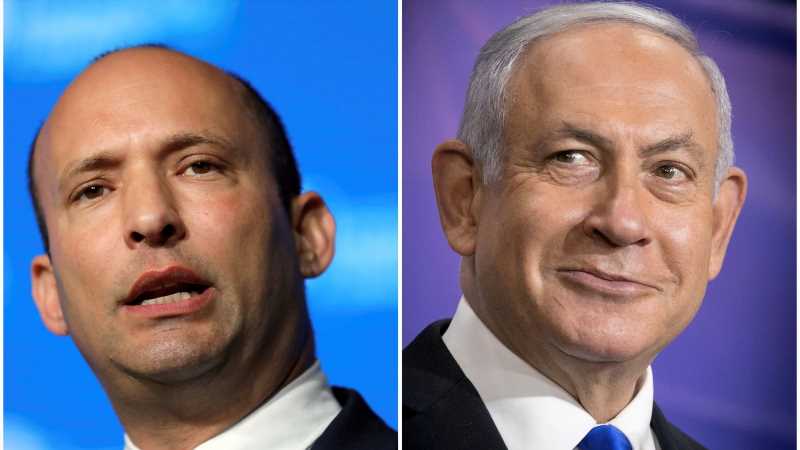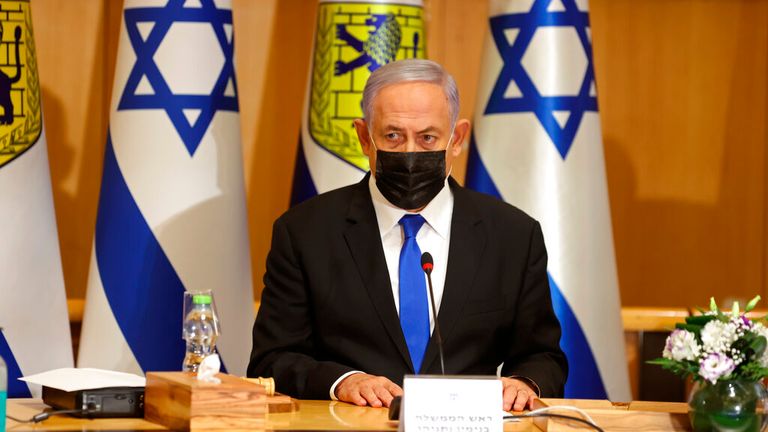Israel’s opposition parties are moving closer to reaching an agreement that could mean the end of Prime Minister Benjamin Netanyahu’s 12 years in power.
Naftali Bennett, leader of the small Yamina party and a kingmaker following elections held in March, said he would join a diverse collection of opponents – including the country’s opposition leader, Yair Lapid – to form a unity government and topple Mr Netanyahu.
The pair have until Wednesday to complete a deal in which they are expected to each serve two years as prime minister on rotation.
A self-made millionaire, Mr Bennett, 49, is a former Netanyahu aide turned rival.
He said it was his intention to “do my utmost in order to form a national unity government along with my friend Yair Lapid, so that, God willing, together we can save the country from a tailspin and return Israel to its course.”
A unity government would end the cycle of deadlock that has plunged the country into four inconclusive elections over the past two years.
It would also end, at least for the time being, the record-setting tenure of Mr Netanyahu, the most dominant figure in Israeli politics over the past three decades. He is currently on trial for corruption.
In a televised statement, Mr Netanyahu accused Mr Bennett of betraying the Israeli right wing.
“A government like this is a danger to the security of Israel, and is also a danger to the future of the state,” he said.
But Mr Bennett said he was taking the dramatic step to prevent yet another election.
While sharing Mr Netanyahu’s nationalist ideology, Mr Bennett said there was no feasible way for the hard-line right wing to form a governing majority in parliament.
“A government like this will succeed only if we work together as a group,” he said.
He said everyone “will need to postpone fulfilling all their dreams.
“We will focus on what can be done, instead of fighting all day on what’s impossible.”
Mr Netanyahu is desperate to stay in power while he is on trial. He has used his office as a stage to rally support and lash out against police, prosecutors and the media.
If his opponents fail to form a government and new elections are triggered, it would give him another chance at seeing the election of a parliament that is in favour of granting him immunity from prosecution.
But if they succeed, he would find himself in the much weaker position of opposition leader and potentially find himself facing unrest in his Likud party.
In order to form a government, a party leader must secure the support of a 61-seat majority in parliament.
Because no single party controls a majority on its own, coalitions are usually built with smaller partners.
As leader of the largest party, Mr Netanyahu was given the first opportunity by the country’s figurehead president to form a coalition. But he was unable to secure a majority with his traditional religious and nationalist allies.
Mr Netanyahu even attempted to court a small Islamist Arab party but was thwarted by a small ultranationalist party with a racist anti-Arab agenda.
Although Arabs make up some 20% of Israel’s population, an Arab party has never before sat in an Israeli coalition government.
After Mr Netanyahu’s failure to form a government, Mr Lapid was then given four weeks to cobble together a coalition.
Source: Read Full Article


